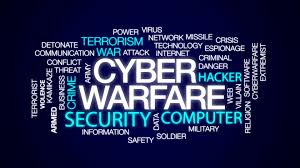In today’s digital world, cyber warfare has become one of the most critical threats to national security. Governments across the globe are continuously strengthening their cyber defenses to protect sensitive data, infrastructure, and citizens from cyberattacks. Cyber warfare is no longer limited to hacking incidents; it includes state-sponsored attacks, ransomware campaigns, espionage, and even AI-powered threats. To counter these threats, countries are investing heavily in cybersecurity technologies, policy-making, and global cooperation.
One of the key strategies governments use is building strong cyber defense agencies. Organizations like the U.S. Cyber Command (USCYBERCOM), India's National Cyber Security Coordinator (NCSC), the UK's National Cyber Security Centre (NCSC), and China's Cybersecurity Bureau are at the forefront of national cyber defense. These agencies work on threat intelligence, cyber forensics, and attack prevention. Many nations have also developed specialized cyber armies that actively monitor and respond to cyber threats in real-time.
Another major approach is developing strict cybersecurity laws and regulations. Governments have implemented data protection laws like GDPR in Europe, CCPA in California, and India’s Digital Personal Data Protection Act to ensure companies and individuals follow strict cybersecurity practices. Additionally, many governments now mandate cybersecurity audits for critical industries like finance, healthcare, and energy to prevent cyberattacks on essential infrastructure.
Governments are also investing in advanced cyber technologies such as Artificial Intelligence (AI) and Machine Learning (ML) to detect and neutralize threats before they cause damage. AI-driven cybersecurity tools analyze patterns, identify suspicious activities, and provide real-time alerts to prevent cyberattacks. Countries are also adopting quantum encryption to protect sensitive communications from cyber espionage.
International collaboration plays a crucial role in fighting cyber warfare. Countries are forming alliances such as NATO’s Cyber Defense Group, the European Union Agency for Cybersecurity (ENISA), and the Global Forum on Cyber Expertise (GFCE) to share intelligence and coordinate responses to cyber threats. The United Nations is also actively working on global policies to regulate cyber warfare and prevent conflicts between nations.
Governments are also conducting cyber drills and training programs to prepare for potential large-scale attacks. These exercises simulate cyber warfare scenarios to test national response strategies. Many governments have introduced cybersecurity education initiatives to train professionals and raise public awareness about cyber threats. Programs like the CyberCorps Scholarship for Service (SFS) in the U.S. and the Cyber Security Awareness Week (CSAW) competitions aim to build a skilled workforce in cybersecurity.
Another rising trend in government strategies is offensive cyber operations, where countries actively engage in cyber espionage, hacking enemy networks, or deploying cyber weapons to disable adversaries' systems. The U.S., Russia, China, and Israel have been known to use cyber tools for intelligence gathering and preemptive strikes against cybercriminals or hostile nations. However, this approach raises ethical concerns and international debates about the legality of cyber warfare.
Despite these efforts, cyber threats continue to evolve, and governments must constantly adapt. The rise of AI-powered cyberattacks, deepfake technology, and cloud security vulnerabilities presents new challenges in cybersecurity. To stay ahead, governments must balance national security, privacy rights, and international diplomacy while ensuring they do not overstep ethical boundaries.
Cyber warfare is an ongoing battle, and while governments are making significant progress, the responsibility to stay secure is shared by organizations, businesses, and individuals. The future of cybersecurity will depend on continuous innovation, strong policies, and global cooperation to prevent cyber conflicts and maintain a safe digital world.
How Governments Are Fighting Cyber Warfare
Posted on March 21, 2025
